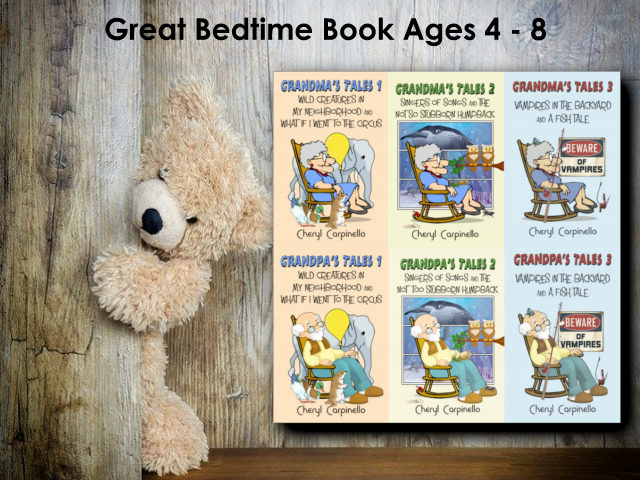USA TODAY bestselling author Sheila Roberts will have readers
laughing and swooning in turn as two rival business owners compete for the
homes and hearts of Moonlight Harbor…
By Sheila Roberts
Brody Green is finding it hard to recover after being dumped by his fiancée, Jenna Jones, then watching her walk down the aisle with someone else. Jenna is determined to make up for her love defection and find him the perfect woman, but Brody is done with love. First a divorce, then a broken engagement. From now on he’s keeping things light, no commitments. Luckily Brody’s business is booming. Beach Dreams Realty is the best real estate company in town. And the only one. Until…
Lucy Holmes needs a new start. In business, in love, in…everything. If ever there was a cliché, it was her life back in Seattle. She was a real estate broker working with her husband until she caught him trying out the walk-in shower in a luxury condo—with another agent. She’s always been the more successful of the two, and with him gone, she’s determined to build a business even bigger than what she had. Moonlight Harbor is a charming town and it has only one real estate agency. Surely there’s room for a little competition.
Or not. Looks like it’s going to be a hot market in Moonlight Harbor. And maybe these two competitors will make some heat of their own.
“Lighthearted and full of colorful, quirky characters and surf-side warmth… Roberts’s picturesque coastal world is sheer delight and will appeal to romance and women’s fiction fans alike.” —Library Journal
Book Information
Release Date: April 26, 2022
Publisher: Harlequin/MIra
Soft Cover: ISBN: 978-0778386353; 368 pages; $9.99; E-Book, $7.99
Amazon: https://amzn.to/3sfzSoa
Lucy Holmes-Anderson was smiling as she made her way to the condo she was showing in downtown Bellevue. She and her husband, Evan, had seen it during a realtors’ open house the day before and been sure that it would sell in a moment. And she was going to be the one to jump on that moment. She had a couple she knew the place would be perfect for and she’d arranged to meet them there on their lunch hour.
She’d tried to let
Evan know that she had a fish on the line but her call had gone straight to
voice mail. It seemed like that happened a lot lately. Hardly surprising,
though. Like her, he was busy showing houses, getting listings, writing up
offers, and when he was with someone, he never took calls. He had said
something about having a noon appointment so he was probably already with his
clients.
Sometimes it seemed
he spent more time showing houses to other people than hanging out in his own
house with her. For a couple who worked together, it sure seemed that they didn’t
see much of each other.
But that was the
nature of the real estate business. No set hours, and evenings and weekends
were usually busy. For both of them. They were often either in their separate
offices in Anderson-Holmes Realty or meeting with people.
Even when they were
together, it felt more like they were simply sharing space. He’d spent most of
the evening the night before convincing a hesitant couple to lay out a king’s
ransom on a dog of a house in a Seattle neighborhood that was supposed to be
the next big thing. By the time he’d gotten off the phone, he’d been ready to
do nothing more than crash in front of the TV.
There wasn’t even
such a thing as a cozy breakfast together. Nothing new there though. Breakfast
had always been a crazy rush to get out the door. This particular morning it
had involved a phone conversation with their daughter, Hannah, about the “little”
accident she’d had with the new car they’d given her the summer before for her
high school graduation. At least she’d only crunched into a post in a parking
garage and the only thing that got hurt was the car, but it was a costly hurt.
Not good for the insurance premiums.
“It’s not that new
anymore,” she’d said in between tears and apologies. “I’ve had it almost a
year.”
“And we’ve paid the
insurance for the first year. Remember, come June it’s going to be time for you
to take that over,” Lucy had said. “And accidents only make your insurance go
up.” Which it was going to do to theirs.
Lucy hadn’t wanted
to be the baddie, but they’d flipped a coin over who was going to have a chat
with their baby and she’d lost.
“Remind her that
she’s got to get a job as soon as spring quarter is over. It’s time she started
taking some financial responsibility,” Evan had insisted.
They were paying
for her tuition at the University of Washington, plus housing (which wasn’t
cheap when you lived in a sorority). Car insurance was something they’d decided
Hannah could cover in the future.
So Lucy had done
the reminding thing.
This had not been
welcome news, and while Hannah could often wheedle one or the other parent into
caving when she wanted something (or to get out of something), the parents had
stayed united on the issue of a summer job.
“You’re not doing
summer quarter,” Lucy had said. (More reminding.) “You’ll have time for a job.
I’m sure you can find something fun. Maybe helping Daddy and me in the office.”
“Inputting boring stuff
into the computer,” Hannah had said in disgust.
“And posting
listings online. Looking at all those cool pictures of houses.”
“Stuck inside like
a mushroom.”
Lucy hadn’t
bothered to remind her daughter that mushrooms grew outside in the woods.
“You guys are so
unfair,” Hannah had concluded.
Of course, that
accusation had been enough to make Lucy want to cave. She had always struggled
with dishing out discipline, even when their daughter was little, although she’d
certainly tried her best. And really, Hannah wasn’t a bad kid. Just a little
spoiled, maybe.
“We need to do
this, don’t we?” she’d said as Evan grabbed the keys to his Maserati and
started for the door.
“We do. Everybody
has to face reality sooner or later, Luc.”
And reality
included hard work. Lucy knew that firsthand. She’d come from a hardworking
middle-class family and put herself through college. So had Evan.
They’d both worked
their way through school at the same pizza parlor and slowly fallen in love in
between orders. With his degree in business and hers in interior design, they’d
partnered up in both business and life. They’d put in long hours to establish
their real estate agency, and when the market in the Seattle area turned hot,
they’d been more than ready to take advantage of it.
They were now the
epitome of success, with three brokers in their office—two hunky millennials
who could charm anyone into listing their house with Anderson-Holmes and a
beautiful, bright young thing named Pandora who reminded Lucy a lot of herself
twenty-two years earlier when she and Evan first opened their doors.
As far as Lucy
could see, the girl’s only flaw was that she lacked confidence. It seemed she
couldn’t submit a single offer without consulting Evan. Only the other day she’d
called with a silly question about a house inspection that left Lucy shaking
her head.
“She just needs
some hand-holding,” Evan had said.
“I could use some hand-holding,”
Lucy had replied in a playful tone of voice.
There’d been a time
when he would have taken the hint, taken her to bed and gotten a hold of more
than her hand. This time, he’d merely chuckled and returned to surfing the
internet on his laptop.
She hadn’t pushed.
They were both going pretty hard and it seemed he was tired a lot.
Still, this wasn’t
what she’d envisioned their love life looking like now that they were empty
nesters. She’d joked to her older sister, Darla, that with Hannah out of the
house, she and Evan would probably have sex in every room. That was what you
did when you had the place to yourselves, right? She and Evan were only
forty-four. He was still in his prime and she was at her sexual peak.
So far, she’d been
lucky if she got him stirred up in the bedroom let alone anywhere else. Where
was all that empty-nester-second-honeymoon fun they were supposed to be having?
Somewhere in the future—at the rate they were working, the distant future.
But all work and no
play… If she closed this deal, she was going to make sure they went on a nice
long vacation. They needed to put the romance back in their relationship. She’d
been eyeing resorts in both Hawaii and Fiji. She’d also been looking into
cruises. One of those European river cruises would be so nice.
Yes, a river
cruise. Evan had his boat and his fancy midlife sports car. She should get a
cruise.
Her smile grew
bigger. The Jorgensons were going to love this slick two-bedroom condo in
downtown Bellevue. In addition to a bonus room, it had all the bells and
whistles—a generous kitchen with quartz countertops and an eating bar; spacious
living and dining rooms; windows with electric blackout blinds; unobstructed
views of downtown Bellevue, Seattle, Lake Washington and the Olympic Mountains.
The facility offered a spa, fitness center and theater room. What was not to
like? For some, the price. But the Jorgensons could afford this.
Actually, so could
Lucy and Evan. It might be nice to downsize from their four-bedroom three-thousand-square-foot
house. It wasn’t like they’d filled the place up with kids. Or ever would.
Okay, maybe not
this condo. Their house was on Lake Washington and it was important to Evan to
be on the water. She liked the water, too. There was something so calming about
it. So someplace smaller. Cozier.
That appealed to
her. Yes, it was worth considering.
Meanwhile, here
were the Jorgensons. In their late thirties, dressed in trendy clothes, driving
a Tesla compact, this couple was more than ready to go from being renters to
becoming homeowners. Lucy had convinced them that a condo was a good way to
start. Plenty of freedom and no maintenance worries.
“I know you’re
going to go crazy when you see this condo,” she told them as she let them into
the lobby.
“I looked at the pictures
online,” said Emma Jorgenson. “It looks gorgeous.” She smiled at her husband,
Aaron, who smiled back at her.
“We’re excited to
see it,” he said.
“I’m excited to
show it to you. If you like it, we’ll want to move quickly. This one won’t
last.”
They rode the elevator
up to the twenty-seventh floor. “The view is amazing. You won’t believe your
eyes,” Lucy said.
She let them into
the unit. It was gorgeous. Hardwood floors, windows showcasing a million-dollar
view (no, make that two million).
But what did she hear?
Was that voices?
“Is someone else
looking at this place?” asked Aaron.
“No one should be.”
Lucy followed the
sound down the hallway and into the master bedroom, her clients trailing her.
“This bedroom is
fabulous,” Emma breathed. Then her eyes fell on the trail of his and hers
clothes leading into the bathroom. “Umm.”
“Sounds like
someone’s in the shower,” said Aaron.
“That’s not possible.
The owners are in Cabo.” But Lucy had seen the clothes also, and someone was
definitely in the bathroom. She could hear water running, and a high-pitched
giggle. What on earth was going on?
“Maybe you should
wait here,” she said to her clients, and moved toward the bathroom.
“Ooh,” said a
familiar female voice as Lucy stepped through the door and onto the azure
porcelain floor.
Oh, no. She had to
be hallucinating. Behind frosted sea green glass, etched with marsh grass,
under the luxury rainfall showerhead, two bodies were silhouetted.
“Baby,” said
another voice.
It was a voice Lucy
knew well, a voice that had called her baby, too. Dread urged her not to look
around that glass wall but anger won out and she did.
There stood Evan
with Pandora, the bright young thing. Both naked and sudsy. And Evan wasn’t
holding her hand. This didn’t happen in real life. This happened in books or
movies.
Lucy blinked,
hoping the image before her would disappear. It didn’t. Evan and Pandora Welk
were still right where she’d seen them.
“Evan?” Lucy squeaked.
He was too busy to hear her. She raised her voice. “Evan!”
Pandora was the first
to turn. Those faux-innocent hazel eyes of hers got so big they looked like
golf balls. She let out a screech and the soap in her hands shot across the
shower.
Evan turned, too,
and looked over his shoulder. If eyeballs could bounce, his would have bounced
right out of his head and onto the shower floor.
“Luc!” he cried,
and stepped in front of Pandora in an effort to shield her.
Caption the moment What’s
Wrong With This Picture?
Plenty. Evan was
old enough to be this girl’s father. There she was, all slender and perky, and
there he was, a forty-four-year-old fool with love handles. It was so
inappropriate and unprofessional and…wrong! And furthermore, if he was going to
go wild and crazy like this, he should have been doing it with Lucy.
The Jorgensons
joined the party, apparently too curious to stay behind. “Eeep,” said Emma
Jorgenson.
“Whoa,” said Aaron
Jorgenson, half laughing.
“Ack!” said Evan,
still trying to shield the home-wrecker from the audience that was gathering to
gawk at them.
Red-faced, Pandora
hurried out of the shower, grabbed a towel and her clothes, and beat it as if
the hounds of hell were after her.
Lucy hoped they were and she hoped they took a great big bite out of that perky, bouncy bottom.
USA Today and Publisher's Weekly bestselling author Sheila Roberts has seen her books translated into several different languages, included in Reader's Digest compilations, and made into movies for both the Hallmark and Lifetime channels. She's happily married and lives in the Pacific Northwest.
Her latest book is the women’s fiction/romance Sand Dollar Lane (Harlequin/Mira, April ’22)
Visit her website at http://www.sheilasplace.com. Connect with her at Twitter, Facebook and Instagram.



























